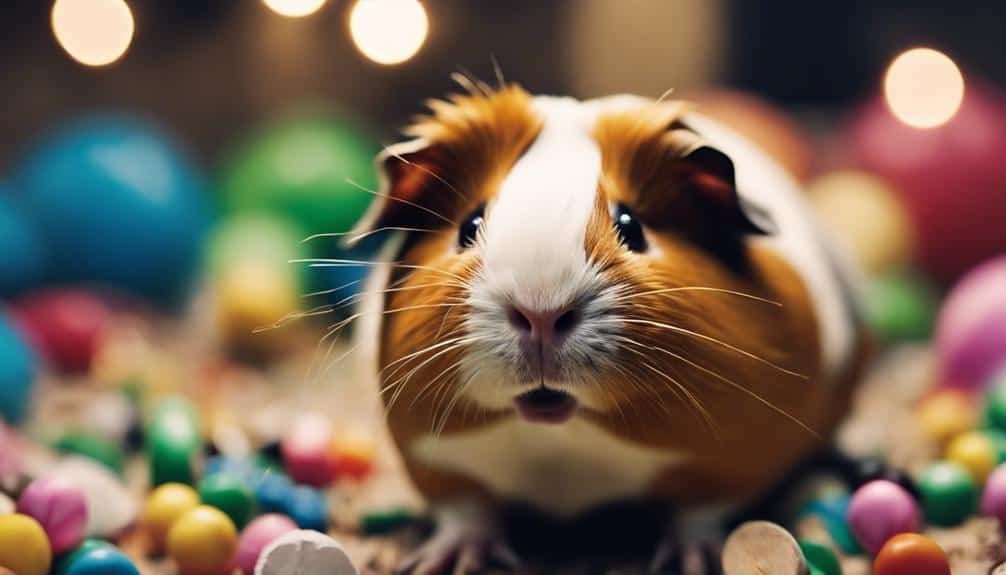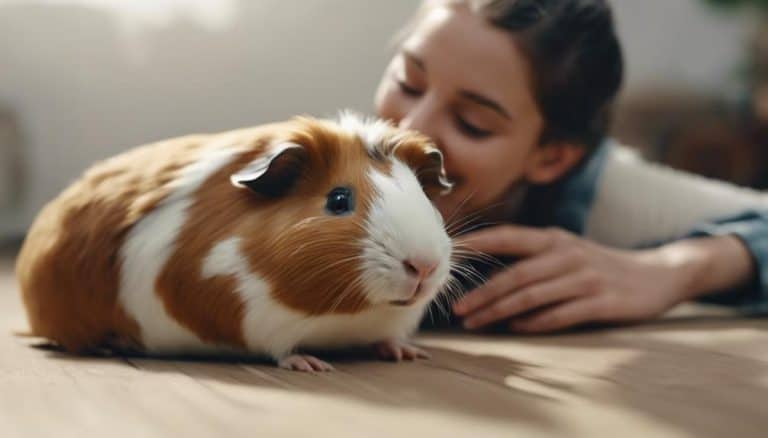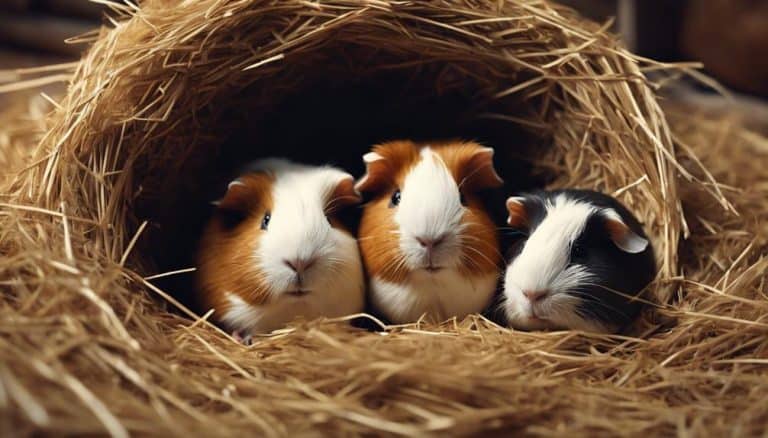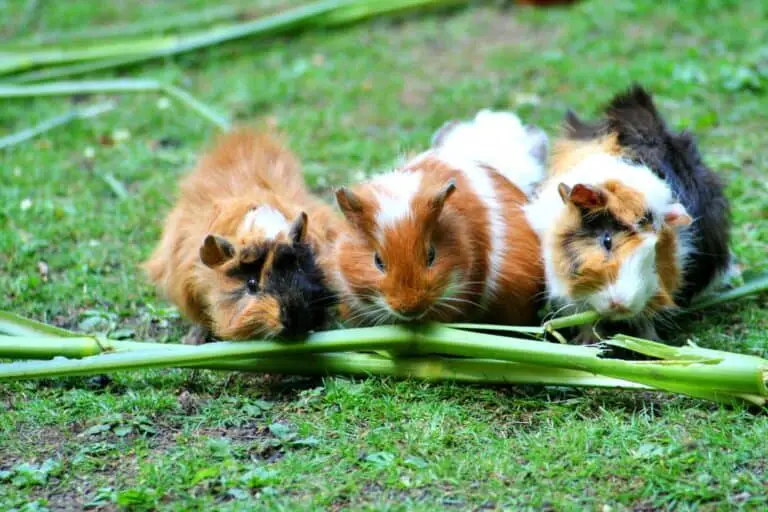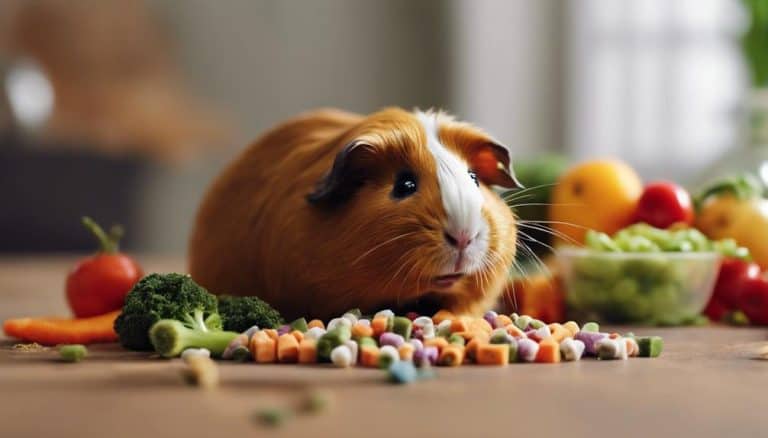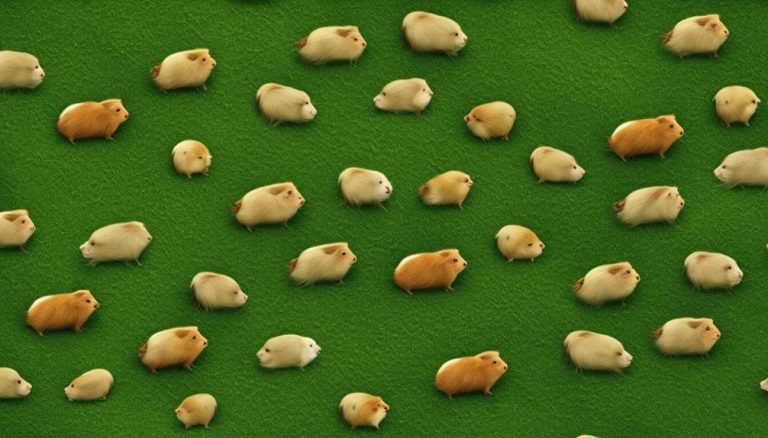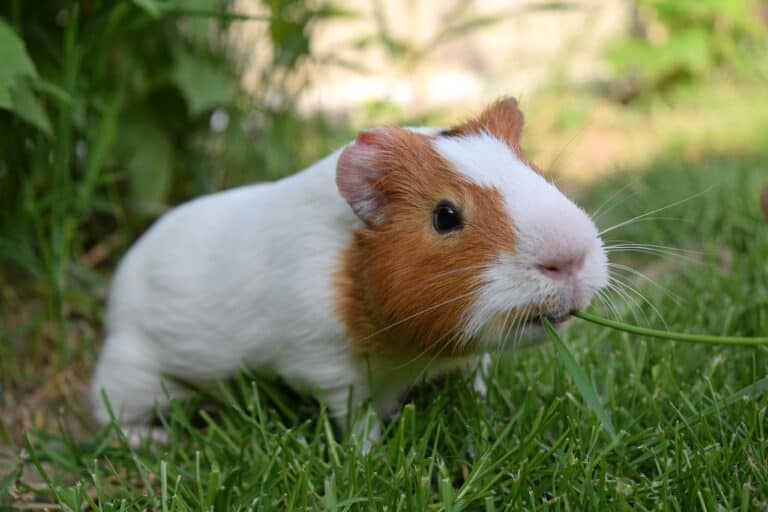Understanding What Guinea Pigs' Squeaks Really Mean
As we set off on the journey of deciphering guinea pigs’ squeaks, we find ourselves unraveling the intricate language of these small, furry creatures. Each squeak is like a puzzle piece, offering a glimpse into their world of emotions and needs.
But what do these squeaks truly signify? Understanding the nuances of guinea pig vocalizations can open a window into their minds, allowing us to respond effectively to their calls.
Let’s explore the depths of guinea pig communication and unravel the mysteries behind their squeaks.
Common Guinea Pig Vocalizations
When observing common guinea pig vocalizations, one can easily distinguish various sounds that convey different emotions and messages. Guinea pigs make a variety of noises, each with its own meaning. These sounds, combined with their body language, offer valuable insights into their feelings and needs.
For example, wheeking is a high-pitched noise that indicates excitement or hunger in guinea pigs. It’s often heard when they anticipate food or during interactions with their owners. On the other hand, chutting is a sign of contentment and enjoyment, commonly heard during daily routines like eating or exploring their environment.
Understanding these common guinea pig noises is essential for building a strong bond with these adorable creatures. By paying attention to their vocalizations and body language, we can better respond to their needs and maintain their well-being.
Guinea pigs are fascinating animals with a rich communication system that’s worth exploring to deepen our connection with them.
Deciphering Wheeking and Chutting
To gain a deeper understanding of guinea pig communication, let’s explore the significance behind the vocalizations of wheeking and chutting. Wheeking is a high-pitched noise that guinea pigs make when they’re excited or hungry, often linked to mealtime anticipation. On the other hand, chutting, also known as clucking, is a sound that reflects contentment and enjoyment, typically heard during daily routines and interactions.
Understanding these vocal cues is important as wheeking signifies excitement or a desire for attention or food, while chutting indicates a happy and comfortable guinea pig.
Deciphering these sounds allows us to comprehend our guinea pigs’ emotions and needs more effectively. Wheeking is a common way for guinea pigs to seek attention or express enthusiasm about something, whereas chutting signals their overall contentment. By recognizing and responding to these sounds appropriately, we can create a more fulfilling environment for our furry companions, enhancing their well-being and strengthening our bond with them.
Understanding Rumbling and Chattering
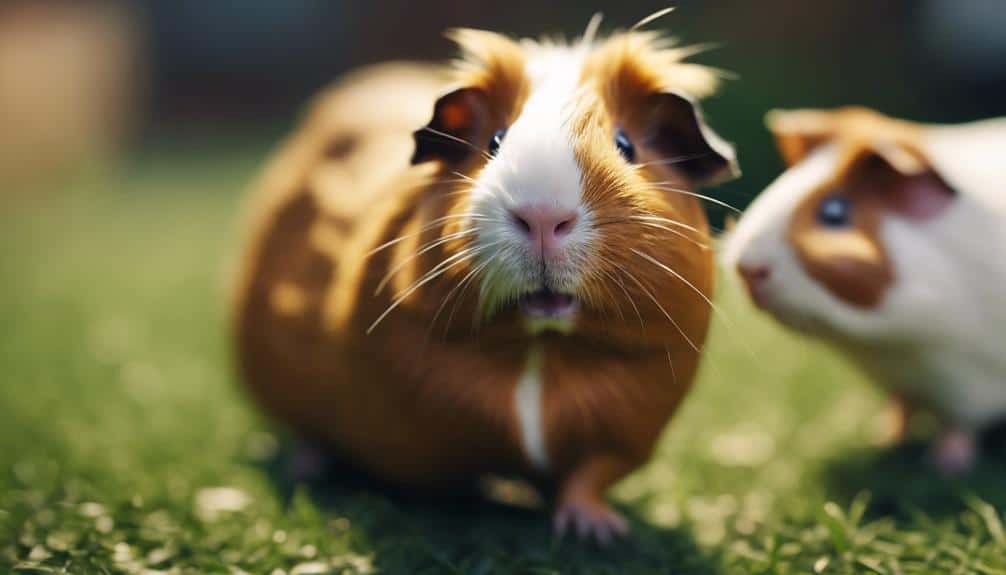
Understanding the nuances of rumbling and chattering in guinea pigs provides valuable insights into their social dynamics and emotional states. Rumbling, a low vibrating sound, can indicate dominance or serve as a reaction to sudden stimuli. When coupled with rumble strutting, where a guinea pig displays dominance through rumbing while walking with an arched back, it establishes social hierarchy within the group.
On the other hand, teeth chattering in guinea pigs signifies annoyance, aggression, or anxiety in specific contexts. This behavior, often a warning signal, can communicate displeasure or a need for space to other guinea pigs. Context plays an essential role in interpreting guinea pig chattering, as it can vary in meaning depending on the situation.
Interpreting Whining and Chirping
Exploring the vocal cues of guinea pigs beyond rumbling and chattering, we now turn our attention to interpreting the significance of whining and chirping sounds they produce. When it comes to understanding these sounds, it’s important to pay close attention to the context and the guinea pig’s behavior to decipher their messages accurately.
Here are some key points to take into account:
- Guinea Pig is Trying to Tell You Something: Whining noises from guinea pigs can indicate that they’re trying to communicate a need or discomfort. It’s necessary to address these sounds promptly to guarantee the pigs’ health and well-being.
- Loss of Appetite: If a guinea pig is whining and showing a loss of appetite, it could be a sign of an underlying health issue. Monitoring their behavior alongside these vocalizations is crucial.
- Ever Wondered What the Chirping Means?: Chirping sounds may suggest fear, anxiety, or anticipation of a negative experience. Understanding why they make this sound can help in creating a comfortable environment for your guinea pigs.
Decoding Shrieking and Other Noises
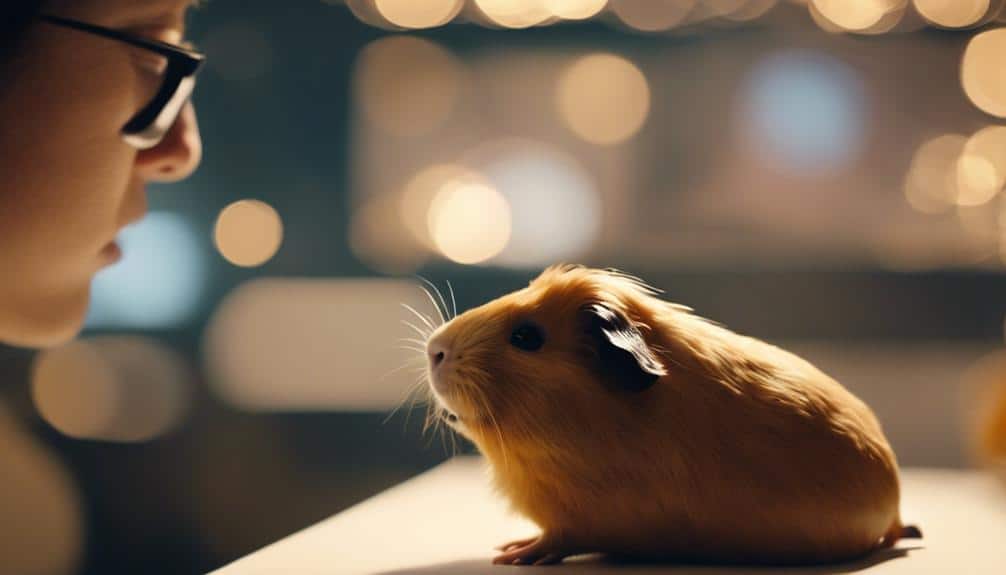
When deciphering the shrieking and other noises made by guinea pigs, it is essential to recognize that these vocalizations signal extreme upset, fear, or distress that demand immediate attention. Guinea pigs rely on their noises to communicate their feelings and needs, making it critical for owners to understand these sounds to guarantee the well-being of their pets. Below is a table outlining some common noises guinea pigs make and their potential meanings:
| Noise | Meaning |
|---|---|
| Shrieking | Extreme distress or fear |
| Chirping | Contentment or excitement |
| Moaning | Discomfort or pain |
| Hissing | Anger or aggression |
| Whistling | Seeking attention or food |
Conclusion
In summary, understanding the various sounds that guinea pigs make is essential for providing them with the care and attention they need.
By deciphering their squeaks, chutters, and chirps, we can better respond to their emotions and guarantee their well-being.
So, don’t underestimate the power of guinea pig communication – it’s like revealing a secret language that strengthens the bond between you and your furry friend in ways you never imagined!

